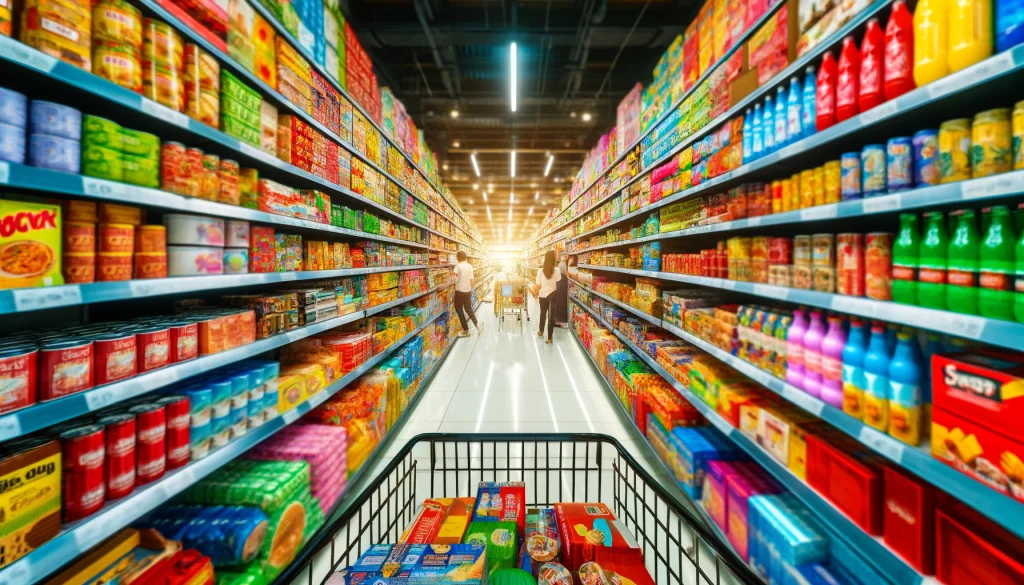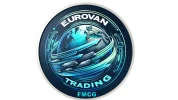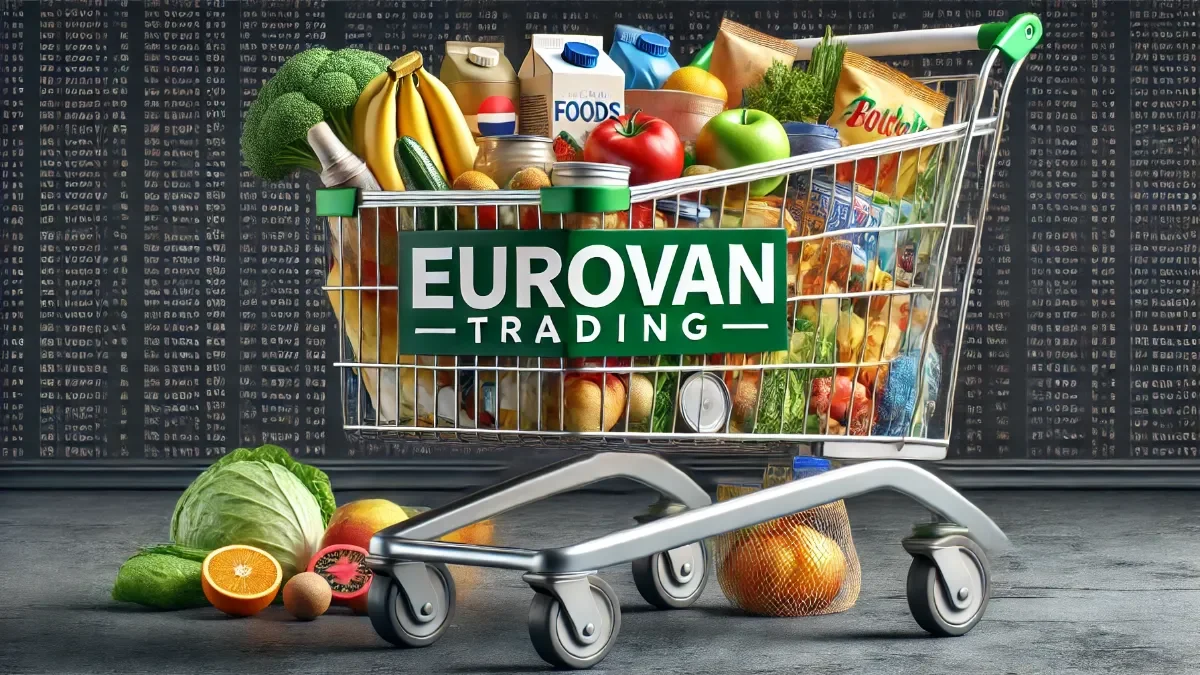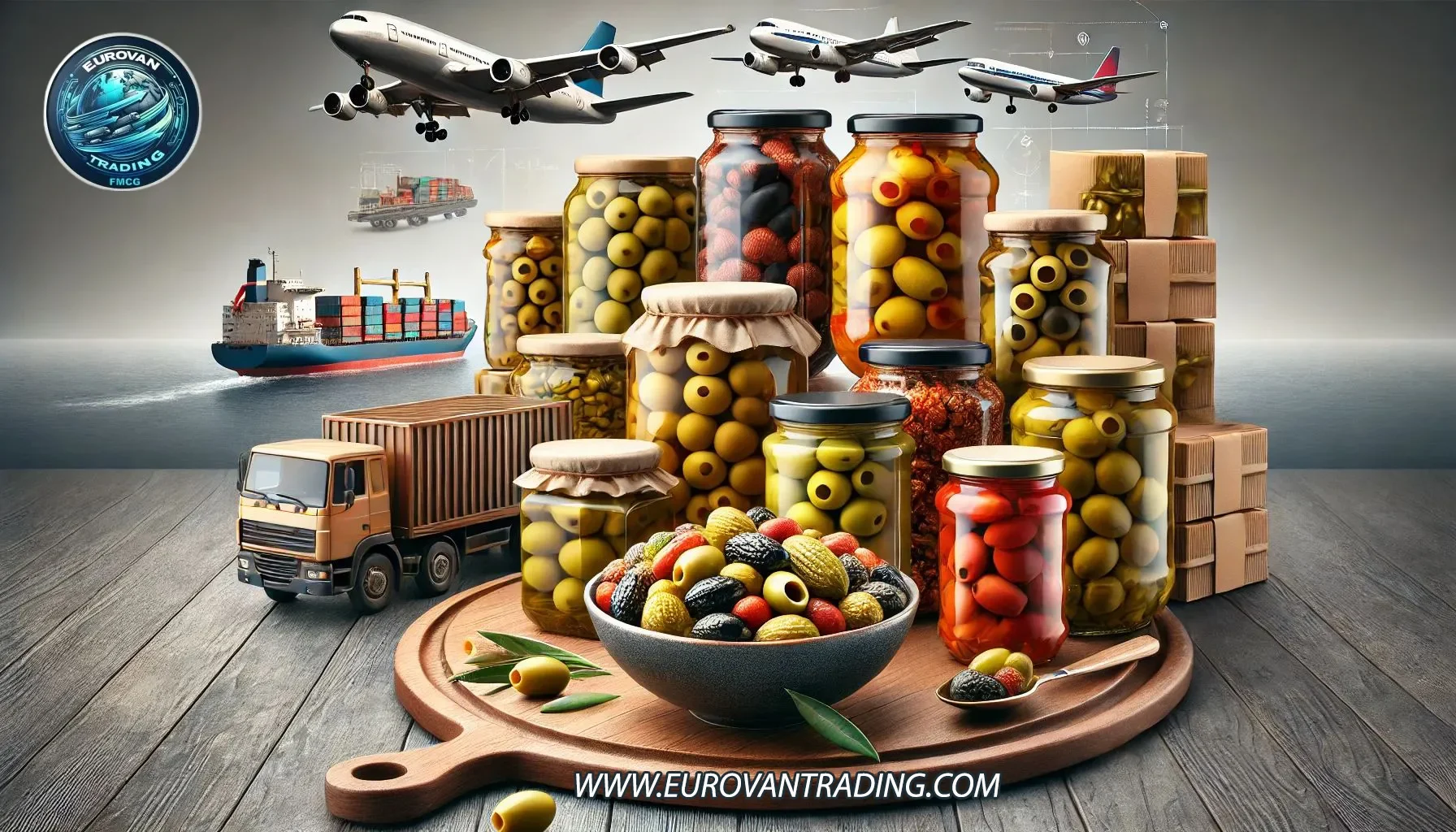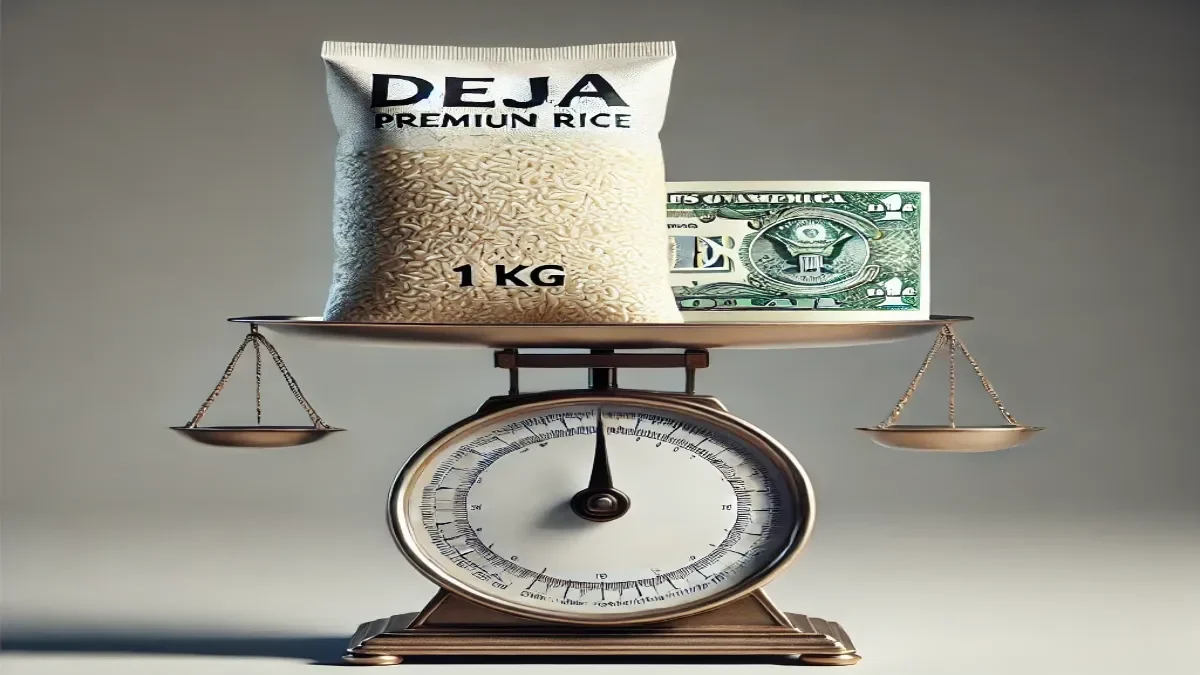retail goods – consumer goods – consumer packaged goods – fast-moving consumer goods – fmcg products – cpg products – cpg trading – consumer packaged goods – fmcg products – cpg products – cpg trading – consumer packaged goods trading – fmcg trading – fast-moving consumer goods trading
Table of contents
- INTRODUCTION TO FMCG TRADING: FAST-MOVING CONSUMER GOODS TRADING
- Key Characteristics of Consumer Packaged Goods Trading
- Understanding the FMCG Supply Chain
- Strategies for Successful CPG Trading
- The Role of Technology in FMCG Trading
- Challenges in FMCG Trading
- The Impact of FMCG Trading on the Economy
- CPG Trading Regulations and Compliance
- Future Trends in FMCG Trading
- FMCG Trading Conclusion
- FAQ Section about FMCG Trading
- Key Takeaways about Fast-Moving Consumer Goods Trading

INTRODUCTION TO FMCG TRADING: FAST-MOVING CONSUMER GOODS TRADING
In today’s fast-paced world, Fast-Moving Consumer Goods Trading, also known as Consumer Packaged Goods Trading, has become a cornerstone of the global economy. From the essential FMCG products we buy weekly to the retail goods that make our lives easier, FMCG trading touches nearly every aspect of our daily routines. This article will delve into the intricacies of CPG Trading, providing a comprehensive guide from the basics to advanced strategies. Eurovan Trading, based in Cairo, Egypt, is a prominent player in this field, offering insights and expertise in the Fast-Moving Consumer Goods market.

Did you know that the global Fast-Moving Consumer Goods (FMCG) market is expected to reach $15 trillion by 2025? This astonishing growth highlights the critical role of FMCG trading in our everyday lives.
What is FMCG Trading?
Fast-Moving Consumer Goods Trading (FMCG), also known by Consumer Packaged Goods Trading(CPG), are products that are sold quickly and at relatively low cost. These items are typically essential goods that consumers buy regularly, such as food, beverages, toiletries, and other household consumer goods. FMCG trading involves the buying and selling of retail goods in large quantities to meet consumer demand.
The Basics of FMCG Trading
FMCG trading is vital because it ensures a steady supply of essential goods to consumers, helping to maintain everyday life continuity. Companies like Eurovan Trading specialize in the distribution of these retail goods, ensuring they reach the market efficiently and effectively. The process begins with the procurement of goods from manufacturers or producers, followed by the distribution to various retailers and wholesalers who then sell these Fast-Moving Consumer Goods to the end consumers.
The Importance of FMCG Trading
The importance of FMCG trading cannot be overstated. It plays a crucial role in the economy by providing employment, facilitating trade, and contributing significantly to GDP. Moreover, FMCG products are indispensable in daily life, making their constant availability essential.
Understanding the Dynamics of FMCG Trading
To understand FMCG trading better, it is essential to grasp the dynamics involved. The process entails a well-coordinated supply chain management system that ensures timely delivery and availability of consumer goods. Effective inventory management, demand forecasting, and strategic sourcing are crucial components that help maintain the balance between supply and demand. Furthermore, understanding consumer behavior and market trends plays a significant role in optimizing the trading strategies employed by Fast-Moving Consumer Goods companies.
Advanced Strategies in FMCG Trading
As the Fast-Moving Consumer Goods market continues to evolve, adopting advanced strategies becomes imperative for staying competitive. Leveraging technology for data analytics, enhancing logistics through automation, and implementing sustainable practices are some of the advanced approaches in FMCG trading. Companies like Eurovan Trading are at the forefront of incorporating these strategies to streamline operations and improve efficiency.
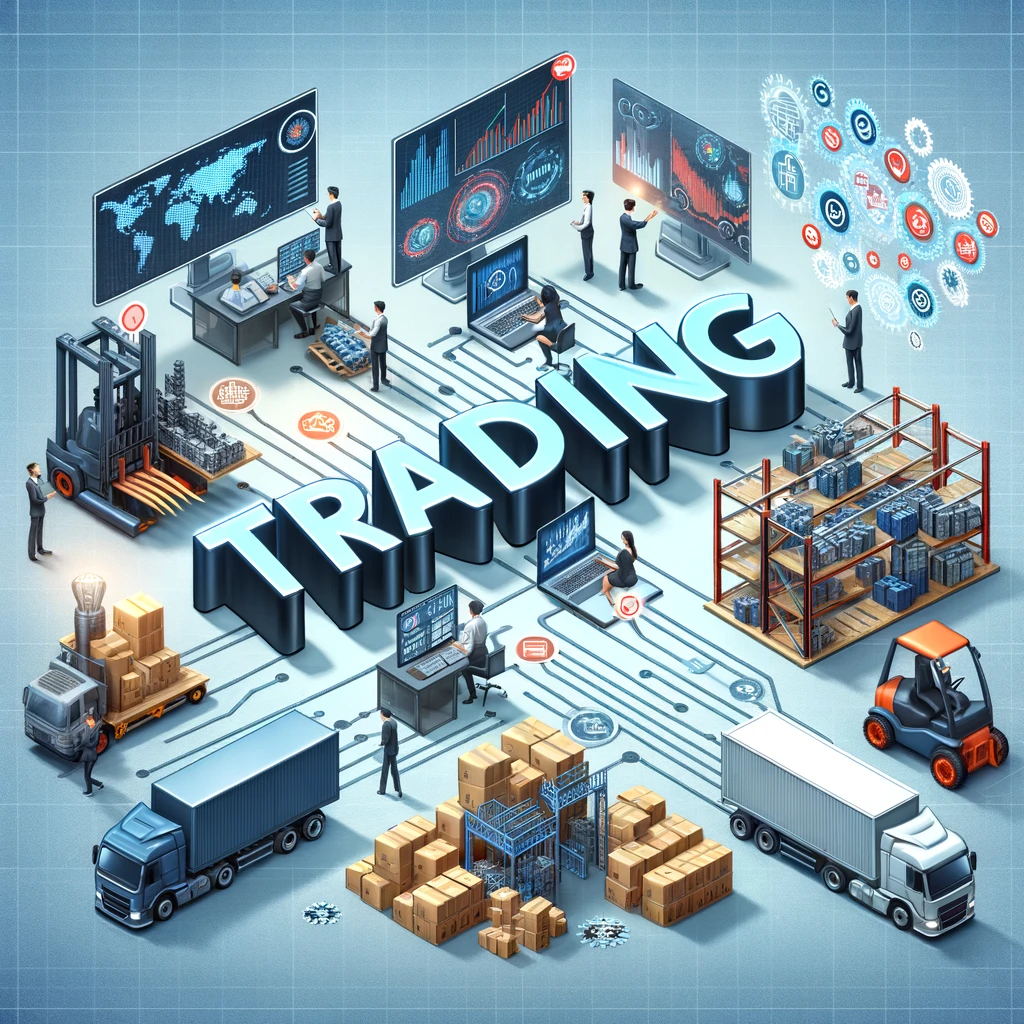

Key Characteristics of Consumer Packaged Goods Trading
CPG products have several distinctive characteristics that set them apart from other goods:
High Turnover of CPG Products
CPG products are sold quickly, with high consumer demand leading to rapid stock turnover. This high turnover rate means that businesses involved in Consumer Packaged Goods Trading must be adept at managing inventory to avoid stockouts or overstocking. Consequently, efficient inventory management systems are crucial for ensuring a seamless flow of goods from manufacturers to consumers.
Low Cost of CPG Products
Retail goods are typically low-cost items, making them accessible to a broad range of consumers. The low cost of CPG products is a key factor in their high demand and frequent purchase. As a result, businesses must focus on maintaining competitive pricing while ensuring product quality to attract and retain customers.
CPG Products Short Shelf Life
Many CPG products, especially food items, have a short shelf life and need to be sold quickly. This necessitates efficient supply chain management to ensure that retail goods reach consumers before they expire. Therefore, Consumer Packaged Goods Trading businesses must prioritize timely distribution and proper storage to maintain product freshness and safety.
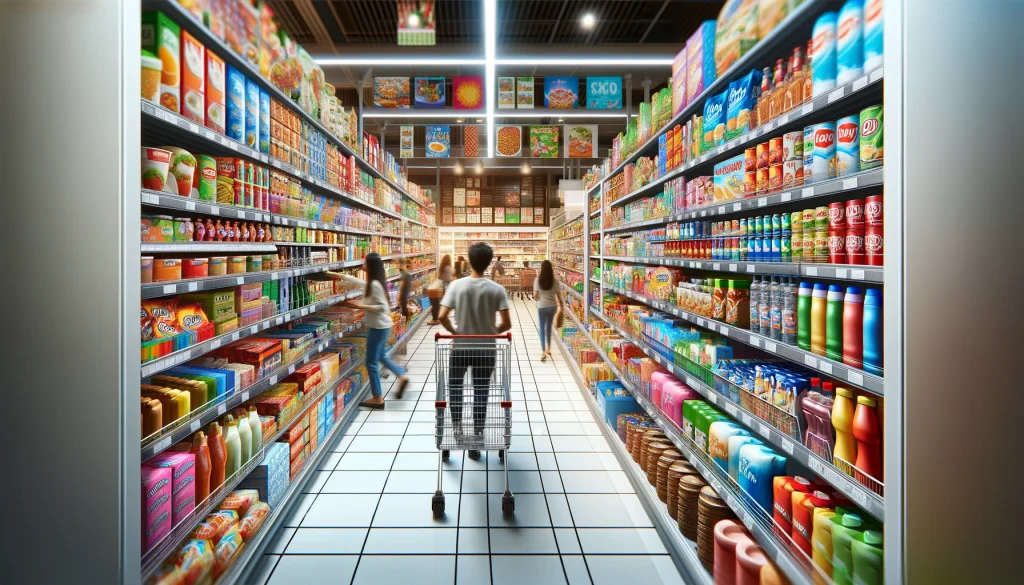
Mass Consumption of CPG Products
CPG products are used by a large segment of the population daily. Items such as toothpaste, snacks, and cleaning supplies are found in almost every household, highlighting their universal demand. Consequently, CPG Trading companies must continuously monitor consumer preferences and market trends to cater to the diverse needs of their customer base.
Examples of Common CPG Products
Examples of common CPG products include toothpaste, snacks, cleaning supplies, and over-the-counter medications. These consumer goods are characterized by their frequent purchase and quick consumption, making them staples in households around the world. For instance, toothpaste is an essential hygiene product used daily, while snacks and cleaning supplies are consumed and replenished regularly.


Case Study: The Success of Eurovan Trading
Eurovan Trading has successfully navigated the CPG Trading market by focusing on these key characteristics. By maintaining a diverse product portfolio or retail goods and ensuring efficient supply chain management, Eurovan Trading has established itself as a reliable distributor in the Consumer Packaged Goods Trading sector. Additionally, their commitment to understanding market dynamics and consumer behavior has enabled them to adapt quickly to changing demands, ensuring continuous growth and customer satisfaction.
Fast-Movin(FMCG) market


Understanding the FMCG Supply Chain
The Fast-Moving Consumer Goods supply chain is a complex network that involves several key stages, from production to the final consumer. Understanding this process is essential for managing the flow of goods efficiently. Here’s a detailed breakdown of the supply chain process:
Manufacturing
The first stage is manufacturing, where producers create the retail goods in factories. This stage involves the production of FMCG products, often on a large scale to meet the high demand. Quality control is crucial to ensure that the products meet safety and regulatory standards. For example, manufacturers must adhere to strict guidelines to maintain the quality and safety of food and beverage products. Additionally, advancements in manufacturing technologies have allowed for more efficient production processes, which can reduce costs and increase output.
Distribution
Following manufacturing, consumer products are transported to warehouses and distribution centers. Efficient distribution is essential to maintain the flow of retail goods from manufacturers to retailers. This stage involves logistics management to ensure timely and cost-effective transportation. Effective distribution strategies help prevent delays and reduce transportation costs, which are vital for maintaining a competitive edge. Moreover, the use of advanced tracking systems and real-time data analytics can enhance the efficiency of the distribution process, ensuring that FMCG products reach their destinations on time.
Wholesale
Next, wholesalers purchase large quantities of FMCG products from manufacturers and distribute them to retailers. Wholesalers play a critical role in bridging the gap between producers and retailers, often providing storage and logistics support. They ensure that a consistent supply of FMCG products is available to meet the demand of various retail outlets. In addition to storage, wholesalers often offer value-added services such as product assortment, bulk breaking, and packaging, which further streamline the supply chain.
Retail
Retailers sell the consumer goods to consumers through various outlets, including supermarkets, convenience stores, and online platforms. Retailers are the final link in the supply chain, ensuring that retail products are accessible to consumers. They also play a crucial role in marketing and promoting FMCG products, enhancing visibility and driving sales. With the rise of e-commerce, retailers are increasingly leveraging digital platforms to reach a broader audience, providing convenience and accessibility to consumers. Moreover, strategic placement of CPG products and effective in-store promotions can significantly influence consumer purchasing decisions.
Consumers
The final stage involves consumers purchasing and using the FMCG products. Consumer feedback at this stage can provide valuable insights for manufacturers and retailers to improve product offerings and services. Understanding consumer preferences and purchasing habits is essential for refining the supply chain and adapting to market trends. Additionally, engaging with consumers through various channels, such as social media and customer service platforms, can help build brand loyalty and drive repeat purchases.
Importance of an Efficient Supply Chain
An efficient supply chain is crucial for the success of FMCG trading. It ensures that FMCG products are available when and where consumers need them. Companies like Eurovan Trading excel in managing this supply chain, ensuring timely and effective distribution of retail goods. An optimized supply chain reduces costs, enhances customer satisfaction, and boosts profitability. Moreover, it allows companies to respond swiftly to market changes and consumer demands, maintaining a competitive edge in the industry.
Case Study: Efficient Supply Chain Management at Eurovan Trading
Eurovan Trading has implemented advanced logistics and inventory management systems to optimize their supply chain. By utilizing technology and data analytics, we ensure that products are delivered promptly and efficiently, minimizing delays and stockouts. For instance, our use of real-time tracking systems allows for better monitoring and management of inventory levels. This proactive approach enables them to respond swiftly to any disruptions, ensuring a steady supply of FMCG products to retailers and, ultimately, consumers. Through these strategies, Eurovan Trading maintains a competitive advantage in the FMCG Trading market, demonstrating the importance of an efficient supply chain in driving business success.
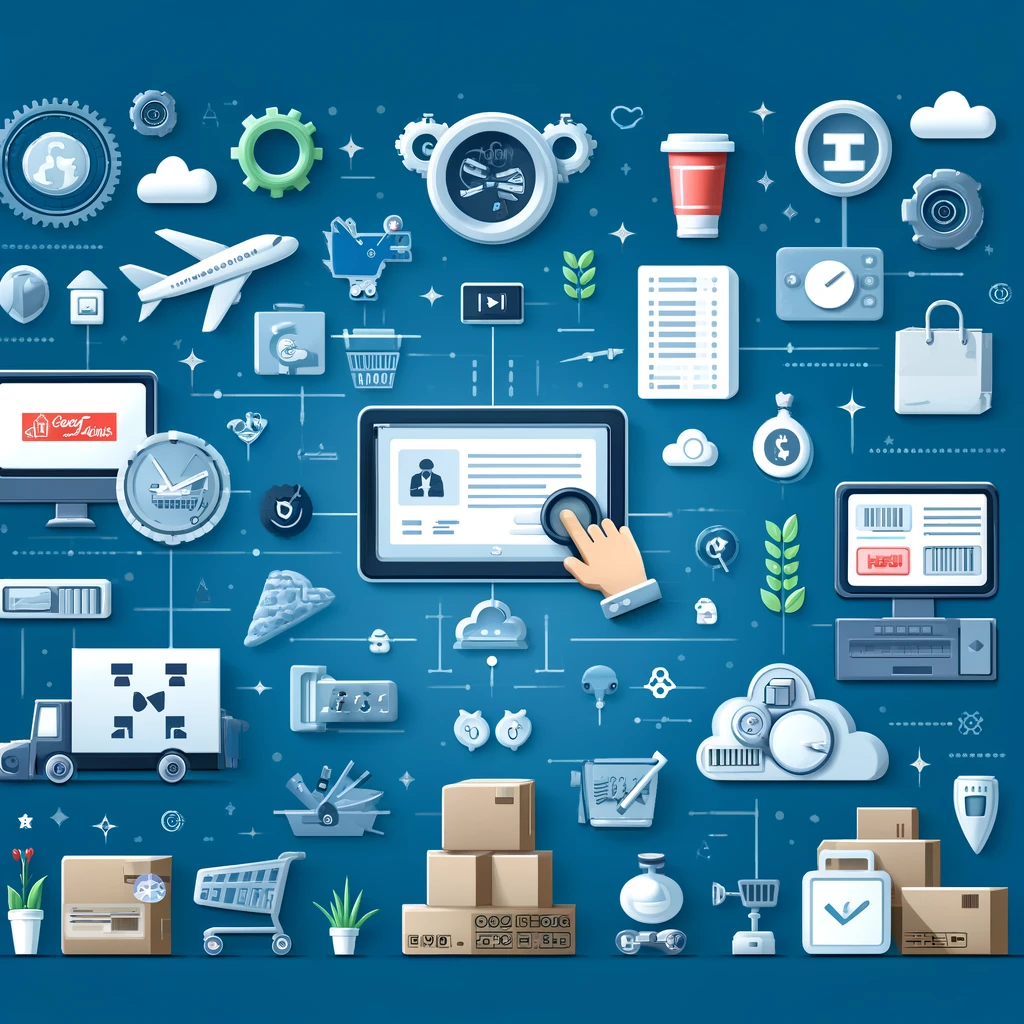
The FMCG supply chain is a multifaceted process that requires careful coordination and management at each stage. From manufacturing to the final consumer, every step is crucial in ensuring that products are delivered efficiently and meet consumer needs. Companies that excel in supply chain management, like Eurovan Trading, showcase the significant impact an optimized supply chain can have on overall business performance and customer satisfaction.

Strategies for Successful CPG Trading
Successful FMCG trading requires a combination of strategies to stay competitive in the market. To achieve this, businesses must be proactive and innovative. Here are some key strategies that can contribute to success:
Product Selection & CPG Trading
Firstly, choosing Fast-Moving Consumer Goods that have high demand and quick turnover is crucial. Market research and consumer trend analysis can help identify these Consumer Packaged Goods. It’s essential to stay updated with consumer preferences to ensure that the consumer goods offered are in line with market demand. For example, continuously monitoring market trends can help businesses identify emerging retail goods and adjust their inventory accordingly. This proactive approach ensures that the product mix remains relevant and appealing to consumers.
Market Research & CPG Trading
Understanding consumer preferences and market trends is vital for successful FMCG trading. This helps in making informed decisions about Consumer Packaged Goods offerings. Conducting surveys, focus groups, and analyzing market data can provide valuable insights into consumer behavior. Additionally, employing advanced analytics tools can help businesses predict future trends and adapt their strategies accordingly. Regularly updating market research ensures that the business remains responsive to changing consumer needs and preferences.
Efficient Logistics & CPG Trading
Streamlining logistics to ensure timely delivery of retail goods is another critical strategy. This includes optimizing routes and employing advanced inventory management systems. Efficient logistics reduce costs and improve the reliability of the supply chain. For instance, utilizing GPS tracking and route optimization software can help minimize delivery times and reduce transportation costs. Furthermore, adopting automated inventory management systems can enhance accuracy and efficiency in stock handling, reducing the likelihood of stockouts and overstock situations.
Building Relationships & CPG Trading
Developing strong relationships with suppliers and retailers can lead to better terms and more reliable supply chains. Long-term partnerships can provide stability and mutual benefits for all parties involved. Regular communication and collaboration with suppliers can help in anticipating and mitigating supply chain disruptions. Additionally, fostering strong relationships with retailers can enhance product placement and promotional opportunities, ultimately driving sales and effectively penetrating the Fast-Moving Consumer Goods market.
Promotions and Discounts & CPG Trading
Attracting customers through promotional campaigns and discounts can significantly boost sales and market share for CPG Trading Companies. Special offers, discounts, and loyalty programs can drive consumer engagement and increase sales. For instance, seasonal promotions and limited-time offers can create a sense of urgency, encouraging consumers to make purchases. Implementing loyalty programs can also help in retaining customers and increasing their lifetime value. Effective marketing strategies ensure that the brand remains top-of-mind for consumers.
Leveraging Technology & CPG Trading
Utilizing technology to improve operations and customer experience is essential in the modern Consumer Packaged Goods Trading landscape. Technologies like CRM (Customer Relationship Management) systems, ERP (Enterprise Resource Planning) software, and AI (Artificial Intelligence) can streamline processes and enhance decision-making. For example, CRM systems can help businesses manage customer interactions and gather valuable data on consumer preferences and behavior. ERP systems can integrate various business processes, improving efficiency and reducing operational costs. Additionally, AI can be used for predictive analytics, helping businesses anticipate demand and optimize inventory levels.
Case Study: Eurovan Trading’s Strategic Approach
Eurovan Trading exemplifies successful Consumer Packaged Goods Trading through its strategic approach. We employ a multi-faceted strategy that includes comprehensive market research, efficient logistics, and strong supplier relationships. Our focus on customer satisfaction through promotions and leveraging technology has helped us maintain a competitive edge in the CPG Trading market. For instance, Eurovan Trading uses advanced data analytics to understand market trends and consumer behavior, allowing us to tailor their product offerings effectively. We also invest in state-of-the-art logistics solutions to ensure timely delivery and reduce operational costs. By building robust relationships with suppliers and retailers, we secure favorable terms and enhance supply chain reliability. Our promotional campaigns and customer loyalty programs further drive consumer engagement and sales. Through these strategies, Eurovan Trading demonstrates the importance of a holistic approach to Consumer Packaged Goods Trading, ensuring long-term success and sustainability in a competitive market.
.
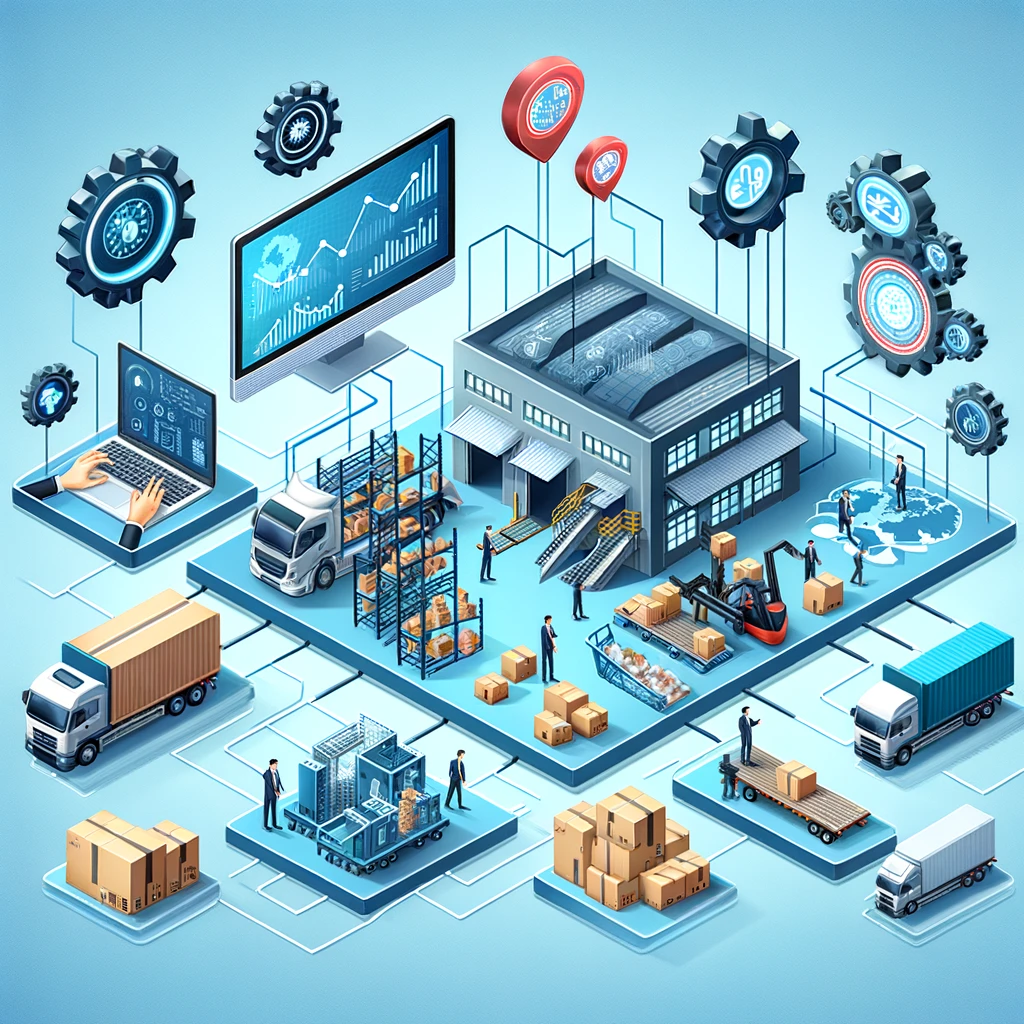
The success of CPG Trading hinges on a combination of strategic product selection, thorough market research, efficient logistics, strong relationships, effective promotions, and leveraging advanced technology. By adopting these strategies, businesses can enhance their competitiveness, improve customer satisfaction, and achieve sustainable growth in the dynamic Consumer Packaged Goods Trading market

The Role of Technology in FMCG Trading
Technology is revolutionizing FMCG trading in numerous ways, fundamentally transforming how businesses operate and compete. Here’s a closer look at how various technological advancements are shaping the Fast-Moving Consumer Goods industry:
Inventory Management Systems
Firstly, advanced inventory management systems play a crucial role in managing stock levels of Consumer Packaged Goods efficiently, reducing the risk of overstocking or stockouts. Automated inventory management systems can track inventory in real-time, providing accurate data for decision-making. For instance, these systems use barcodes and RFID technology to monitor stock movements, ensuring that inventory records are always up-to-date. This real-time visibility helps businesses respond swiftly to changes in demand, minimizing the risk of running out of stock or holding excess inventory.
E-commerce Platforms
Moreover, online sales channels have become crucial, especially in the wake of the COVID-19 pandemic. E-commerce platforms provide consumers with convenient access to FMCG products, allowing businesses to reach a wider audience and offer a seamless shopping experience. For example, companies can use these platforms to showcase their product range, offer personalized recommendations, and provide flexible payment options. Additionally, integrating e-commerce with social media and mobile apps can further enhance customer engagement and drive Fast-Moving Consumer Goods sales.
Data Analytics
Furthermore, big data and analytics provide invaluable insights into consumer behavior and market trends, helping CPG Trading businesses make data-driven decisions. By analyzing sales data, customer preferences, and market trends, companies can inform product development and marketing strategies. For instance, predictive analytics can help identify emerging consumer trends, enabling businesses to adjust their product offerings proactively. Additionally, data analytics can optimize supply chain operations by identifying inefficiencies and suggesting improvements.
Automation
In addition, automated processes in warehousing and logistics significantly enhance efficiency and reduce operational costs. Technologies such as robotics, automated guided vehicles (AGVs), and conveyor systems can improve the speed and accuracy of order fulfillment. For example, robots can handle repetitive tasks such as picking and packing, reducing the likelihood of errors and freeing up human workers for more complex tasks. Automation also enables Fast-Moving Consumer Goods businesses to scale their operations more effectively, meeting increased demand without compromising on service quality.
Customer Relationship Management (CRM)
Customer Relationship Management (CRM) systems are also vital, helping Consumer Packaged Goods businesses manage customer interactions and data throughout the customer lifecycle. This can lead to improved customer satisfaction, loyalty, and sales growth. CRM systems enable Fast-Moving Consumer Goods businesses to personalize their interactions with customers, providing tailored recommendations and support. Furthermore, CRM data can help identify key customer segments and target them with specific marketing campaigns, increasing the effectiveness of promotional efforts.
CPG Trading & Artificial Intelligence (AI)
Artificial Intelligence (AI) is another game-changer, capable of predicting consumer behavior, optimizing pricing strategies, and personalizing marketing efforts. AI algorithms can analyze vast amounts of data to provide actionable insights and recommendations. For example, machine learning models can forecast demand patterns, helping CPG Trading businesses plan their inventory more accurately. AI can also be used to create personalized marketing campaigns, enhancing customer engagement and driving conversions.
Case Study: Eurovan Trading’s Technological Innovations
Eurovan Trading exemplifies the effective integration of technology in FMCG trading. We have integrated advanced inventory management systems and e-commerce platforms to enhance our operations. By leveraging data analytics and AI, we have improved our understanding of consumer behavior and optimized our marketing strategies. For instance, Eurovan Trading uses AI-driven analytics to predict market trends and adjust their product offerings accordingly. Additionally, our use of CRM systems allows us to personalize customer interactions, boosting satisfaction and loyalty. Through these technological innovations, Eurovan Trading has maintained a competitive edge, demonstrating the significant impact of technology on Fast-Moving Consumer Goods Trading business success.

The role of technology in FMCG Trading is multifaceted and transformative. From inventory management to customer relationship management, technological advancements are enabling businesses to operate more efficiently and effectively. By embracing these technologies, Fast-Moving Consumer Goods companies can enhance their competitiveness, improve customer satisfaction, and drive sustainable growth in a rapidly evolving market.

Challenges in FMCG Trading
Despite its many opportunities, FMCG trading comes with several challenges that Fast-Moving Consumer Goods businesses must navigate to remain successful. Here’s a closer look at some of the key challenges and how Consumer Packaged Goods companies can address them:
Intense Competition
Firstly, the FMCG market is highly competitive, with numerous players vying for market share. CPG Trading Businesses must continually innovate and differentiate their offerings to stay ahead. This often involves investing in research and development to create unique products that stand out in a crowded market. Additionally, maintaining competitive pricing while ensuring product quality is crucial. Effective marketing strategies and strong brand positioning can also help businesses attract and retain customers, even in the competitive landscape of Fast-Moving Consumer Goods.
Regulatory Compliance
Moreover, adhering to local and international Consumer Packaged Goods Trading regulations can be complex and time-consuming. Compliance with health, safety, and environmental regulations is essential to avoid legal issues and maintain consumer trust. For example, food and beverage companies must meet stringent safety standards and labeling requirements. Keeping abreast of regulatory changes and ensuring that all products and processes comply with these standards can be challenging. Businesses may need to invest in compliance management systems and seek expert advice to navigate the regulatory landscape effectively.
Supply Chain Disruptions with Fast-Moving Consumer Goods
Furthermore, events such as natural disasters or pandemics can disrupt the supply chain, affecting the availability of goods. Businesses must have contingency plans in place to mitigate these risks. For instance, diversifying suppliers and establishing strong relationships with multiple vendors can help ensure a steady supply of raw materials and finished goods. Additionally, adopting advanced supply chain management systems can enhance visibility and flexibility, allowing Fast-Moving Consumer Goods businesses to respond swiftly to disruptions. Implementing risk management strategies, such as maintaining safety stock and identifying alternative transportation routes, can also mitigate the impact of supply chain disruptions.
Changing Consumer Preferences
Additionally, keeping up with evolving consumer preferences requires constant market research and adaptation. Trends such as health and wellness, sustainability, and convenience are shaping consumer choices. Consumer Packaged Goods businesses must stay informed about these trends and adjust their product offerings accordingly. For example, the growing demand for organic and eco-friendly products requires companies to source sustainable ingredients and adopt environmentally friendly practices. Engaging with consumers through social media and other channels can provide valuable insights into their preferences and expectations, helping Fast-Moving Consumer Goods businesses stay relevant and competitive.
Rising Costs of Fast-Moving Consumer Goods
Moreover, increasing costs of raw materials, labor, and transportation can impact profitability. Fast-Moving Consumer Goods businesses must find ways to manage costs while maintaining product quality and affordability. This might involve negotiating better terms with suppliers, improving operational efficiency, and adopting cost-saving technologies. For instance, implementing energy-efficient processes and optimizing logistics can reduce operational costs. Additionally, businesses can explore alternative raw materials and production methods that are more cost-effective without compromising on quality.
Sustainability Issues
Consumers are becoming more environmentally conscious, demanding sustainable and ethically sourced Consumer Packaged Goods. Businesses must adopt sustainable practices to meet these demands and reduce their environmental impact. This includes implementing eco-friendly packaging, reducing waste, and sourcing materials from sustainable sources. Transparency and communication about sustainability efforts can enhance consumer trust and loyalty. Companies can also seek certifications and partnerships that demonstrate their commitment to sustainability, further strengthening their brand reputation.
Overcoming Challenges
However, with the right strategies and resilience, these challenges can be overcome. For instance, Eurovan Trading has navigated various challenges successfully through strategic planning and adaptive measures. Their approach includes continuous innovation, proactive risk management, and a strong focus on customer satisfaction. By leveraging technology and data analytics, they stay ahead of market trends and consumer preferences, allowing them to respond swiftly to changes and maintain a competitive edge in the Fast-Moving Consumer Goods market.
Case Study: Eurovan Trading’s Resilience
Eurovan Trading has demonstrated resilience by adapting to market changes and overcoming challenges. Our strategic planning and proactive measures have helped them maintain a strong Fast-Moving Consumer Goods market presence despite various obstacles. For example, during supply chain disruptions, we utilized real-time tracking systems to monitor inventory levels and identify alternative suppliers quickly. Our commitment to sustainability has also resonated with environmentally conscious consumers, driving brand loyalty and sales. By focusing on innovation and continuous improvement, Eurovan Trading has successfully navigated the complexities of the Fast-Moving Consumer Goods market, illustrating that challenges can be effectively managed with strategic planning and adaptability.

While FMCG trading presents several challenges, businesses that are proactive, innovative, and resilient can overcome these obstacles. By understanding and addressing issues such as competition, regulatory compliance, supply chain disruptions, changing consumer preferences, rising costs, and sustainability, companies can thrive in this dynamic industry.

The Impact of FMCG Trading on the Economy
FMCG trading significantly impacts the global economy in several profound ways. By understanding these impacts, we can appreciate the critical role that Fast-Moving Consumer Goods companies play in driving economic growth and stability.
Job Creation with Consumer Packaged Goods
Firstly, the Consumer Packaged Goods sector is a major employer, providing jobs to millions of people worldwide in various functions such as manufacturing, distribution, retail, and marketing. These jobs support local economies and provide livelihoods for many families. For example, large FMCG Trading companies often establish manufacturing plants in regions with high unemployment, creating job opportunities and boosting local economies. Additionally, the retail and distribution networks associated with FMCG products offer employment to a wide range of professionals, from warehouse workers to sales representatives and logistics managers.
Economic Growth
Moreover, the high turnover and consumption of FMCG products contribute substantially to Gross Domestic Product (GDP). The FMCG sector drives economic activity through production, distribution, and retail. This continuous cycle of production and consumption stimulates economic growth, as businesses invest in infrastructure, technology, and human resources. For instance, the constant demand for FMCG products ensures that factories operate at full capacity, leading to increased industrial output and higher GDP contributions. Retail sales of FMCG products also generate significant revenue, further bolstering economic growth.
Innovation
Furthermore, competition in the Consumer Packaged Goods market drives innovation, leading to new products and improved processes. Businesses invest heavily in research and development to stay competitive and meet consumer demands. This innovation can lead to the introduction of healthier, more convenient, and more environmentally friendly products. For example, FMCG Trading companies are increasingly developing products with sustainable packaging, responding to consumer demand for eco-friendly options. Innovations in manufacturing processes, such as automation and artificial intelligence, also enhance efficiency and reduce production costs, benefiting the broader economy.
Consumer Satisfaction with Consumer Packaged Goods
Additionally, ensuring a steady supply of essential Consumer Packaged Goods enhances the quality of life for consumers. FMCG products meet everyday needs, providing convenience, nutrition, and hygiene. By offering a wide range of affordable and accessible products, Fast-Moving Consumer Goods companies help improve living standards and support public health. For instance, the availability of nutritious food products and personal hygiene items is essential for maintaining health and well-being. Reliable access to these products also reduces the time and effort consumers spend on shopping, allowing them to focus on other aspects of their lives.
Supply Chain Integration
FMCG Trading also promotes integration and efficiency in supply chains, benefiting related industries. Efficient supply chains reduce costs and improve product availability, contributing to economic stability. By optimizing logistics and inventory management, CPG Trading companies ensure that products are delivered on time and at the right price, minimizing waste and maximizing resource utilization. This efficiency has a ripple effect on related industries, such as packaging, transportation, and retail, creating a more interconnected and resilient economic ecosystem.
Case Studies
Case studies of successful Fast-Moving Consumer Goods companies, such as Eurovan Trading, demonstrate the positive economic impact of efficient FMCG trading. These companies showcase best practices in supply chain management, innovation, and customer engagement. For instance, Eurovan Trading’s strategic use of technology and data analytics has improved their supply chain efficiency, reduced costs, and enhanced customer satisfaction. Their commitment to sustainability and ethical business practices has also set a benchmark in the Fast-Moving Consumer Goods sector, illustrating how responsible business practices can drive economic and social benefits.
Case Study: Eurovan Trading’s Economic Contributions
Eurovan Trading has significantly contributed to the local and global economy through various initiatives. By creating jobs, We have supported local communities and provided stable employment opportunities. Our investments in research and development have led to innovative products and processes, fostering economic growth and enhancing their competitive edge. Additionally, Eurovan Trading’s focus on consumer satisfaction through efficient supply chain management has ensured a steady supply of essential goods, improving the quality of life for consumers. Our sustainable business practices have also reduced their environmental impact, contributing to broader economic and social goals.
In conclusion, the impact of FMCG trading on the economy is multifaceted and substantial. From job creation and economic growth to innovation and consumer satisfaction, the FMCG sector plays a crucial role in shaping economic outcomes. Companies like Eurovan Trading exemplify how effective management and strategic planning can maximize these positive impacts, demonstrating the vital importance of the CPG Trading Industry in the global economy.

The impact of CPG Trading on the economy is multifaceted and substantial. From job creation and economic growth to innovation and consumer satisfaction, the Consumer Packaged Goods Trading sector plays a crucial role in shaping economic outcomes. Companies like Eurovan Trading exemplify how effective management and strategic planning can maximize these positive impacts, demonstrating the vital importance of the CPG Trading industry in the global economy.

CPG Trading Regulations and Compliance
Regulatory compliance is crucial in CPG trading to ensure product safety, quality, and ethical business practices. Here’s an expanded overview of the key regulatory aspects and their significance:
Health and Safety Regulations
Firstly, compliance with health and safety standards is essential to protect consumers. These regulations ensure that products are safe for use and consumption, preventing potential health hazards. For instance, food products must adhere to stringent hygiene standards to prevent contamination. This includes proper handling, storage, and transportation to avoid spoilage and contamination. Similarly, cosmetics and pharmaceuticals must meet safety guidelines to avoid adverse effects on users. Regulatory bodies like the Food and Drug Administration (FDA) in the US and the European Food Safety Authority (EFSA) enforce these standards. These agencies conduct regular inspections and audits to ensure compliance, and failure to meet these standards can result in CPG product recalls, fines, and legal action.
Labeling Requirements
Moreover, accurate and informative labeling of products is crucial as per local regulations. Labels must provide essential information such as ingredients, nutritional content, usage instructions, and expiration dates. This transparency helps consumers make informed choices and ensures that products are used safely and effectively. For example, food labels must include allergen information to help consumers avoid products that could trigger allergic reactions. In addition to allergens, labels on pharmaceutical products must list active ingredients and potential side effects. Compliance with labeling regulations not only protects consumers but also helps CPG Trading businesses avoid legal issues related to misleading or incomplete product information.
Environmental Regulations for Consumer Packaged Goods Trading
Additionally, adhering to regulations aimed at reducing environmental impact is becoming increasingly important. This includes sustainable packaging, waste management, and reducing carbon footprints. Governments and regulatory bodies worldwide are implementing stricter environmental regulations to combat climate change and promote sustainability. Companies must adopt eco-friendly practices such as using biodegradable packaging, reducing waste, and minimizing energy consumption in production processes. For example, Consumer Packaged Goods Trading businesses are encouraged to use recyclable materials and implement energy-efficient technologies. Compliance with these regulations not only benefits the environment but also enhances a company’s reputation among eco-conscious consumers.
Trade Regulations
Furthermore, CPG Trading often involves cross-border transactions, making compliance with international trade regulations necessary. This includes adhering to import and export laws, tariffs, and trade agreements. Understanding and navigating these regulations is crucial to avoid legal issues and ensure smooth international operations. Businesses must stay informed about trade policies, tariffs, and customs procedures in different countries to efficiently manage their global supply chains. For instance, compliance with trade agreements can help businesses avoid delays at customs and reduce costs associated with tariffs and duties. Effective management of these regulations ensures that products reach international markets without unnecessary complications.
Consumer Protection Laws
Additionally, consumer protection laws are designed to safeguard consumers from fraudulent and unsafe products. These laws ensure that products meet quality standards and that businesses follow fair trading practices. Non-compliance can result in legal actions, fines, and damage to a company’s reputation. Companies must prioritize consumer protection by maintaining high standards of quality control, transparency, and ethical business practices. For example, adhering to the Consumer Product Safety Improvement Act (CPSIA) in the US ensures that children’s products meet safety standards, protecting young consumers from harm. Compliance with these laws builds consumer trust and loyalty, essential for long-term business success.
Tips for Staying Compliant
Staying compliant with these regulations helps businesses avoid legal issues and build consumer trust. Here are some strategies to ensure compliance:
- Regular Updates: Continuously update knowledge of relevant regulations and standards. This can be achieved through subscriptions to regulatory bodies’ newsletters, attending industry seminars, and consulting with legal experts. Staying informed about changes in regulations helps businesses anticipate and adapt to new requirements.
- Quality Control: Implement robust quality control measures to ensure products meet regulatory standards. Regular inspections and audits can help identify and rectify compliance issues. For example, adopting ISO 9001 standards can enhance quality management systems, ensuring consistency and reliability in product quality.
- Staff Training: Train staff on compliance requirements to ensure everyone understands their roles and responsibilities. This includes educating employees about new regulations and best practices. Regular training sessions and workshops can keep staff updated on compliance issues, reducing the risk of violations for CPG Trading Companies
- Audits and Assessments: Conduct regular audits to ensure adherence to regulations and identify areas for improvement. External audits by third-party organizations can provide an unbiased assessment of compliance levels. These audits can highlight potential risks and offer recommendations for enhancing compliance practices.
Case Study: Eurovan Trading’s Compliance Excellence
Eurovan Trading has implemented stringent compliance measures to adhere to health, safety, environmental, and trade regulations. Their proactive approach to regulatory compliance has helped them maintain high standards of product quality and consumer trust. For instance, Eurovan Trading regularly updates its compliance protocols to align with the latest regulatory requirements. They conduct frequent internal and external audits to ensure adherence to these protocols. Additionally, Eurovan Trading invests in staff training programs to ensure that all employees are aware of and follow compliance standards. Their commitment to sustainability is evident in their adoption of eco-friendly practices, such as using recyclable packaging materials and reducing their carbon footprint through energy-efficient operations. Through these measures, Eurovan Trading exemplifies how rigorous compliance can drive business success and build consumer confidence.
In conclusion, regulatory compliance in FMCG trading is multifaceted, encompassing health and safety, labeling, environmental, trade, and consumer protection regulations. By staying informed and implementing robust compliance strategies, businesses can avoid legal issues, enhance consumer trust, and contribute to sustainable economic growth. Companies like Eurovan Trading illustrate the positive impact of stringent compliance measures, setting benchmarks for industry best practices.
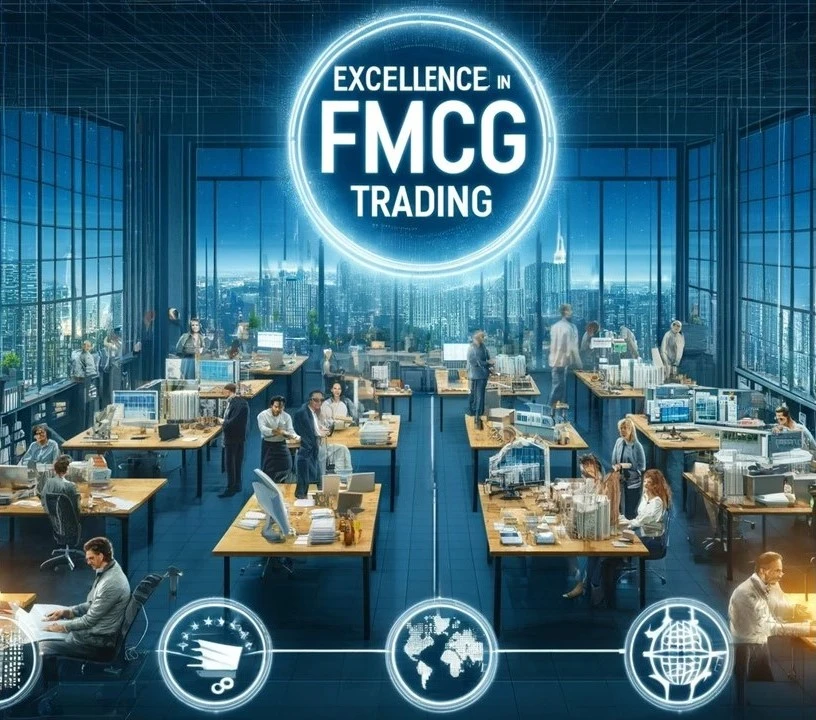

Future Trends in FMCG Trading
The FMCG market is continually evolving, and several future trends are likely to shape its trajectory. Understanding and adapting to these trends can help businesses stay competitive and meet consumer expectations.
Sustainability of FMCG Trading
There is an increasing focus on sustainable practices, including eco-friendly packaging and ethical sourcing. Consumers are more environmentally conscious and prefer products that are sustainably produced and packaged. Companies must adopt sustainable practices to meet these demands and reduce their environmental impact. This can include using recyclable materials, reducing plastic usage, and implementing energy-efficient production processes. Brands that prioritize sustainability can attract eco-conscious consumers and gain a competitive edge.
FMCG Trading Personalization
Customization of products and marketing strategies to meet individual consumer preferences is on the rise. Personalized products and targeted marketing can enhance customer satisfaction and loyalty. Advances in technology, such as AI and big data analytics, allow businesses to gather and analyze customer data to create personalized experiences. For example, companies can offer personalized product recommendations, customized packaging, and tailored marketing messages based on individual consumer preferences and behaviors.
Digital Transformation of FMCG Trading
Continued integration of digital technologies to enhance efficiency and consumer experience is expected. This includes e-commerce platforms, digital marketing, and online customer service. Digital transformation enables businesses to reach a wider audience and provide a seamless shopping experience. Technologies such as AI, machine learning, and blockchain can optimize supply chain management, improve customer service, and enhance data security. E-commerce platforms and mobile apps offer convenience and flexibility, allowing consumers to shop anytime, anywhere.
Health and Wellness in FMCG Trading
There is a growing demand for health and wellness products, including organic and natural goods. Consumers are more health-conscious and prefer products that promote well-being. Businesses can capitalize on this trend by offering a range of health-focused products. This includes organic foods, natural skincare products, and dietary supplements. Companies can also invest in research and development to create innovative health and wellness products that cater to specific consumer needs.
Convenience of Consumer Packaged Goods Trading
Convenience remains a significant factor driving CPG purchases. Consumers prefer products that save time and effort, such as ready-to-eat meals and online shopping options. Companies must focus on enhancing convenience to meet consumer expectations. This can include offering a variety of convenient packaging options, expanding delivery services, and optimizing the online shopping experience. Subscription services and automated reordering systems can also provide added convenience for consumers.
Technological Advancements
Technological advancements such as AI, IoT (Internet of Things), and blockchain are expected to revolutionize FMCG trading. These technologies can improve supply chain transparency, enhance inventory management, and provide better customer insights. For example, IoT devices can track products throughout the supply chain, providing real-time data on inventory levels and product conditions. Blockchain technology can enhance traceability and security, ensuring the authenticity and quality of products. AI can analyze consumer data to predict trends and optimize marketing strategies.
Globalization
Globalization continues to influence FMCG trading, with businesses expanding into new markets. Understanding local consumer preferences and regulatory requirements is crucial for success in international markets. Companies must conduct thorough market research to identify opportunities and challenges in different regions. This includes understanding cultural differences, consumer behaviors, and competitive landscapes. Developing localized marketing strategies and establishing strong distribution networks can help businesses effectively enter and thrive in global markets.
Case Study: Eurovan Trading’s Adaptation to Future Trends
Eurovan Trading has proactively embraced future trends by adopting sustainable practices, leveraging digital technologies, and personalizing their offerings. Their commitment to innovation and consumer satisfaction has positioned them well for future growth.
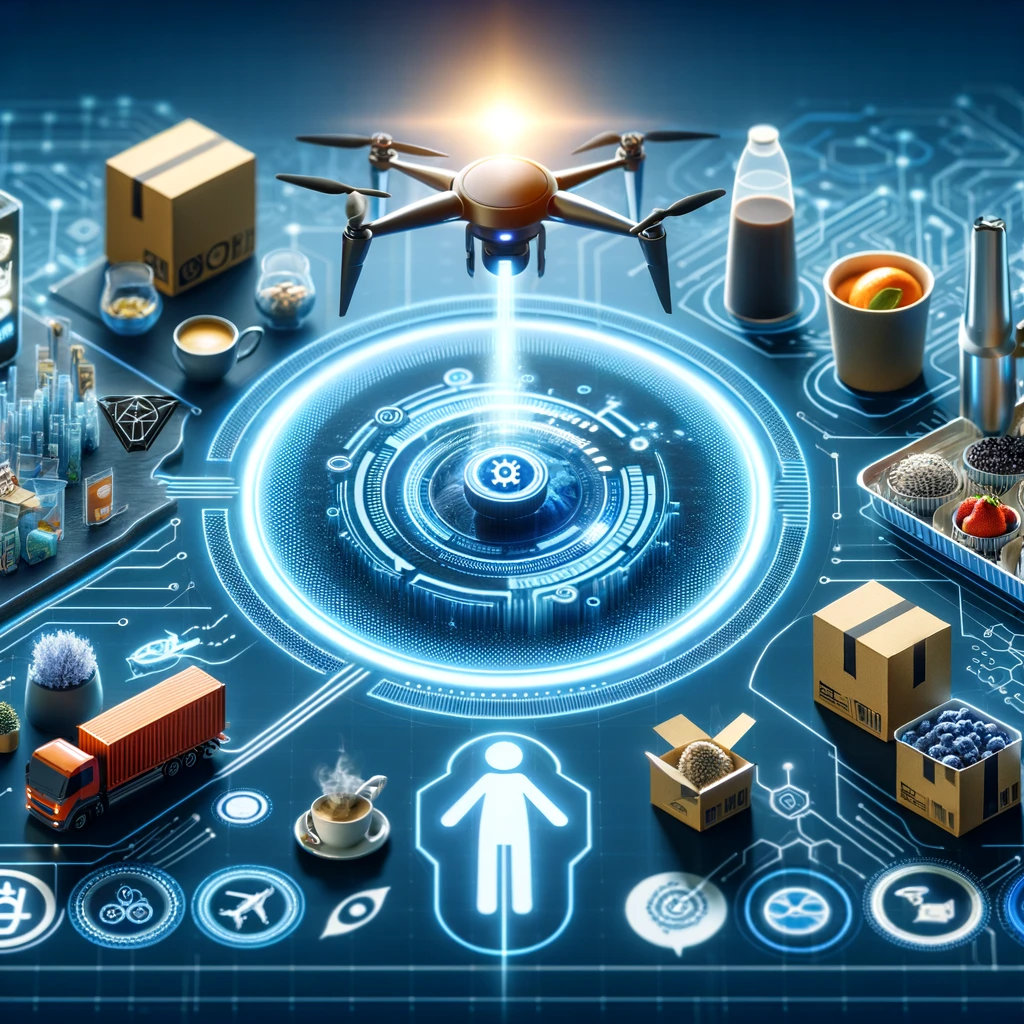

FMCG Trading Conclusion
FMCG trading is a dynamic and essential part of the global economy, involving a complex supply chain and a variety of strategic considerations. From understanding the basics to implementing advanced strategies, this guide has covered the key aspects of FMCG trading. Eurovan Trading, with its expertise and innovative approach, is well-equipped to navigate this fast-paced industry. For businesses and consumers alike, staying informed about CPG trading can lead to better decisions and improved outcomes.
FAQ Section about FMCG Trading
FMCG products are fast-moving consumer goods that are sold quickly and at low cost, such as food, beverages, toiletries, and household products. These items are purchased frequently and are essential for daily living.
The FMCG market is important because it ensures the availability of essential goods to consumers, contributing significantly to the global economy. It supports millions of jobs and drives economic activity through production, distribution, and retail.
Key challenges include intense competition, regulatory compliance, supply chain disruptions, and changing consumer preferences. Businesses must continually innovate and adapt to these challenges to remain competitive.
Technology impacts FMCG trading by improving inventory management, enabling e-commerce, providing data analytics, and automating processes. Technologies such as AI, IoT, and blockchain enhance efficiency, transparency, and customer insights.
Sustainability is increasingly important in FMCG trading as consumers demand eco-friendly and ethically sourced products. Companies adopting sustainable practices can attract eco-conscious consumers and reduce their environmental impact.
Businesses can stay compliant by regularly updating their knowledge of relevant regulations, implementing robust quality control measures, training staff on compliance requirements, and conducting regular audits.
Future trends include sustainability, personalization, digital transformation, health and wellness, convenience, technological advancements, and globalization. Understanding and adapting to these trends can help businesses stay competitive and meet consumer expectations.
Key Takeaways about Fast-Moving Consumer Goods Trading
- FMCG trading involves the rapid sale of low-cost essential goods.
- Efficient supply chain management is crucial for success in FMCG Trading.
- Technology and innovation play a significant role in modern FMCG Trading.
- Regulatory compliance and sustainability are critical considerations.
- Future trends in FMCG trading include sustainability, personalization, and digital transformation.
Key Characteristics of FMCG Trading Products
| Characteristic | Description |
|---|---|
| High Turnover | FMCG products are sold quickly due to high consumer demand, leading to rapid stock turnover. |
| Low Cost | These goods are typically low-cost items, making them accessible to a broad range of consumers. |
| Short Shelf Life | Many FMCG products have a short shelf life, necessitating efficient supply chain management. |
| Mass Consumption | These goods are used daily by a large segment of the population, highlighting their universal demand. |
| Examples of FMCG | Toothpaste, snacks, cleaning supplies, over-the-counter medications, beverages, and toiletries. |
Stages of the Fast-Moving Consumer Goods Trading Supply Chain
| Stage | Description |
|---|---|
| Manufacturing | Producers create consumer goods in factories, focusing on large-scale production and quality control. |
| Distribution | FMCG Products are transported to warehouses and distribution centers for efficient and timely delivery. |
| Wholesale | Wholesalers purchase large quantities of FMCG products from manufacturers and distribute them to various retailers. |
| Retail | Retailers sell retail goods to consumers through outlets like supermarkets, convenience stores, and online platforms. |
| Consumers | End consumers purchase and use the CPG Products, providing feedback that can help improve offerings. |
Strategies for Successful FMCG Trading
| Strategy | Description |
|---|---|
| Product Selection | Choosing high-demand products with quick turnover based on market research and consumer trends. |
| Market Research | Understanding consumer preferences and market trends through surveys, focus groups, and data analysis. |
| Efficient Logistics | Streamlining logistics to ensure timely delivery, optimize routes, and employ advanced inventory management systems. |
| Building Relationships | Developing strong relationships with suppliers and retailers to secure better terms and reliable supply chains. |
| Promotions and Discounts | Boosting sales and market share through special offers, discounts, and loyalty programs. |
| Leveraging Technology | Using technologies like CRM systems, ERP software, and AI to streamline operations and enhance customer experience. |
Technological Tools in FMCG Trading
| Technology | Impact on FMCG Trading |
|---|---|
| Inventory Management | Manages stock levels efficiently, reduces overstocking and stockouts, and provides real-time data for decision-making. |
| E-commerce Platforms | Expands reach to a wider audience, offers convenient shopping options, and integrates online and offline sales channels. |
| Data Analytics | Provides insights into consumer behavior and market trends, informing product development and marketing strategies. |
| Automation | Enhances efficiency in warehousing and logistics through robotics and automated systems, reducing operational costs. |
| Customer Relationship Management (CRM) | Manages customer interactions and data throughout the lifecycle, improving satisfaction, loyalty, and sales growth. |
| Artificial Intelligence (AI) | Predicts consumer behavior, optimizes pricing strategies, and personalizes marketing efforts using data analysis and algorithms. |
Regulatory Compliance in FMCG Trading
| Regulation | Description |
|---|---|
| Health and Safety Regulations | Ensures CPG Products are safe for use and consumption, adhering to guidelines on ingredients, manufacturing, and packaging. |
| Labeling Requirements | Mandates accurate and informative labeling, providing essential information such as ingredients, nutritional content, and usage instructions. |
| Environmental Regulations | Promotes sustainable practices, including eco-friendly packaging, waste management, and reducing carbon footprints. |
| Trade Regulations | Governs cross-border transactions, including import/export laws, tariffs, and trade agreements. |
| Consumer Protection Laws | Safeguards consumers from fraudulent and unsafe products, ensuring fair trading practices and product quality. |

